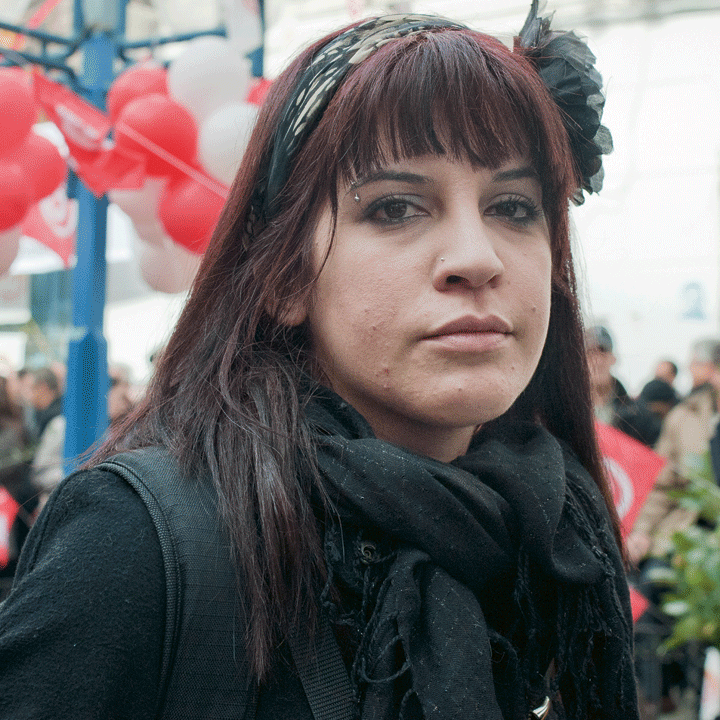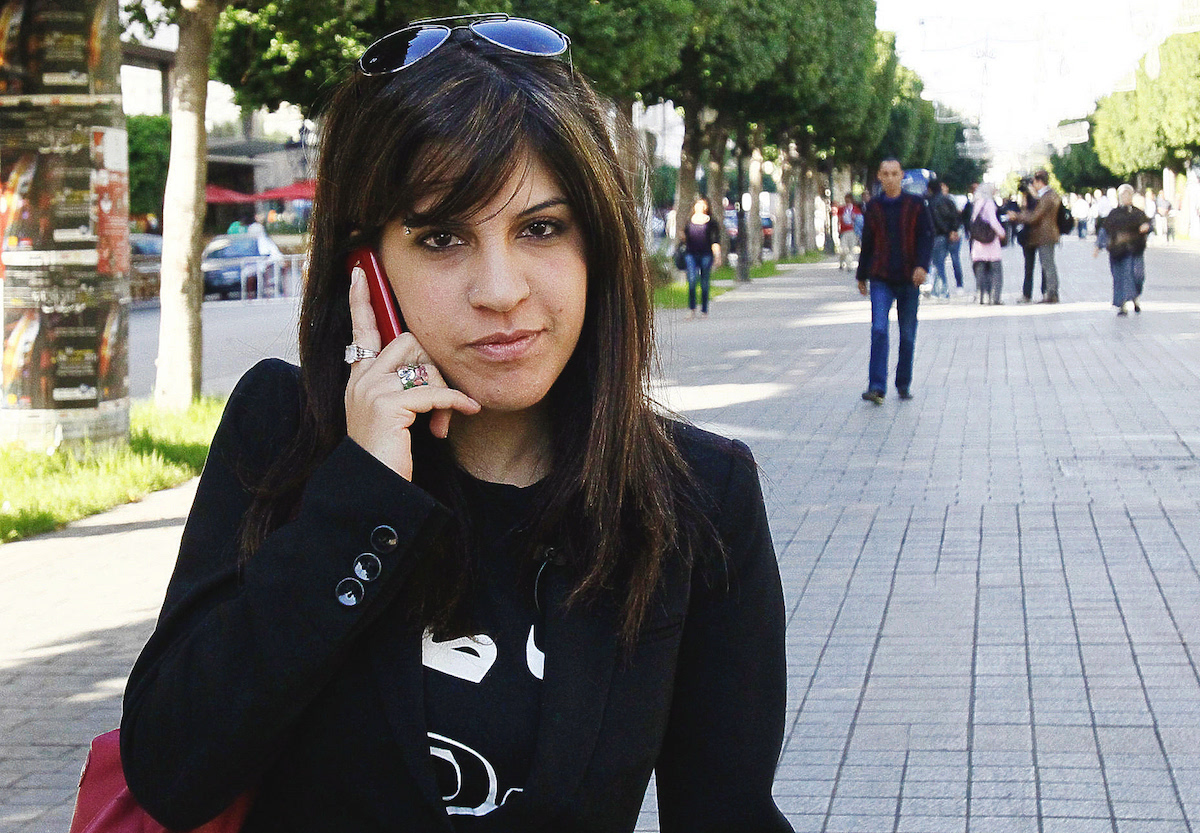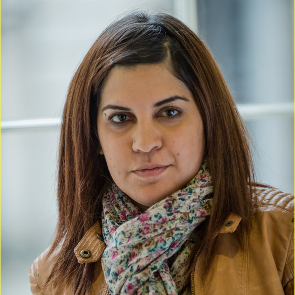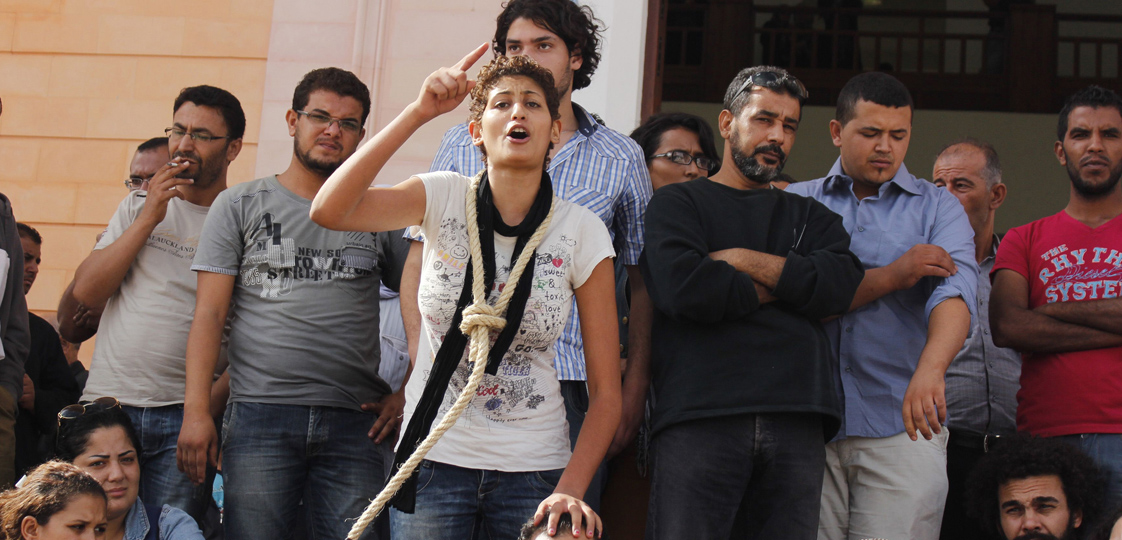
Lina Ben Mhenni
The International Peace Bureau is delighted to announce its decision to award the 2012 Sean MacBride Peace Prize to two Arab women: Lina Ben Mhennifrom Tunisia and Nawal El-Sadaawi from Egypt. They have both shown great courage and made substantial contributions to what is known as the Arab Spring.
Lina Ben Mhenni's "A Tunisian Girl," blog won the 2011 Deutsche Welle International Blog Award (the BOBs). A panel of jury members chose her for her work documenting abuses by former Tunisian President Zine El Abidine Ben Ali's regime and promoting democracy in the country.
Lina Ben Mehnni represents the importance and value that the free press has had on so-called 'Arab Spring', together with the rise of new technologies.
Lina Ben Mhenni Testimony
Let us fight against torture and violence with all our might. However, let us publicly honour those that have been subjected to violence, and those that are prepared to face and those who will face violent crimes by describing them as heroes rather than victims.

When I saw how people were being killed it became clear there was no going back. I had to ensure that the voices of these people and their families be heard so that they hadn’t died in vain.
Lina Ben Mhenni was a Tunisian Internet activist, blogger and assistant lecturer in linguistics at Tunis University.
Mhenni's blog, A Tunisian Girl, is written in Arabic, English, and French. During the rule of former Tunisian President Zine El Abidine Ben Ali, Mhenni was one of the few bloggers to blog using her real name rather than adopting a pseudonym to protect her identity. Her blog, as well as her Facebook and Twitter accounts, were censored under the Ben Ali regime.
Mhenni began posting photos and video of protests of those injured throughout Tunisia. In an effort to make the government responsible for its actions and to the people who were harmed in these uprisings, she visited local hospitals and took pictures of those harmed by police.
In January 2011, she covered the early weeks of the Tunisian Revolution from Sidi Bouzid Governorate in the interior of the country. Mhenni was the only blogger present in the interior cities of Kasserine and Regueb when government forces massacred and suppressed protesters in the region. Her reports and posts provided uncensored information to other Tunisian activists and the international media.
Her activism after Ben Ali's overthrow led to her receiving death threats and requiring close protection of the police.



